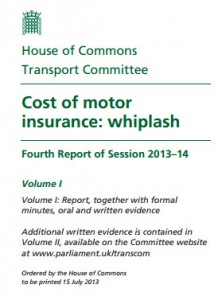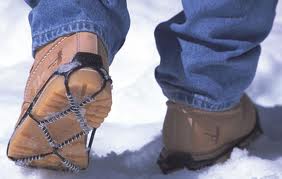The best way to find a solicitor in Scotland? Check for proven specialist knowledge If you think you need a solicitor and you do not either have one already or manage to get recommendations from relatives or friends, the likelihood is that you will do an internet search to find a suitable solicitor. That was the main finding of research carried out by the German equivalent of Which? Magazine (Stiftung Warentest) and published in its March 2013 edition. And it's not an unexpected result. The Proportion of People Searching the Internet for a Solicitor What is perhaps surprising is that internet search came quite a distant third (behind “have a solicitor already” and “ask a trusted person to suggest a good solicitor”) with only 15% of respondents giving that as their main research method. On the other hand, you are probably carrying out an online search if you are reading this … The Top Criterion in Choosing a Solicitor – Proven Specialist Knowledge The survey also Continue Reading
Why are some claims for the same injury worth less than others?
Comparing personal injury claim values can have you going round in circles If you have been injured in an accident and want to get an idea how much your claim might be worth, it’s easy to find sources of information on the internet that seem to be helpful. But it can quickly become difficult to reconcile the awards of damages received by different claimants. Often, you find two people with apparently-similar injuries who received very varying levels of compensation. Why is that? Solatium and “special” damages Personal injury claims are valued under two broad headings: solatium and special damages. In Scotland, your claim for the pain and suffering caused by your injuries is known as solatium (in other jurisdictions, it is often known as “general damages”). Special damages, on the other hand, compensate you for financial losses resulting from the accident – typically, wage loss. So, if we compare two women of the same age who each have a broken wrist of similar nature and Continue Reading
Work Accidents: All Change, But Not For Public Sector Employees
A significant change in the law affecting personal injury claims for accidents at work becomes effective from 01 October 2013. A review of health and safety legislation over the last two years by the Westminster Government culminates in the enactment of section 69 of the Enterprise and Regulatory Reform Act 2013 (“the 2013 Act”), which is in force from 01 October. Background to the Enterprise and Regulatory Reform Act 2013 The Government considered that there was too much red tape for businesses trying to comply with their health and safety obligations and this resulted in unnecessary cost. The Government also took the view that the present law was unfair because employers’ liability insurers sometimes had to pay out on claims even though the employer they insured had done everything they could to safeguard their employees in the circumstances. There was, for example, such “strict liability” if an employee was injured due to a failure of a piece of work equipment even if it could Continue Reading
When your business insurers refuse to indemnify you
Businesses require to have Employers’ Liability insurance by law. This is so if an employee gets injured at work due to the employer’s breach of duty there is a guaranteed fund available to meet any claim. Public liability insurance covers organisations and businesses against negligence and breaches of duty which cause injury and loss to people other than their employees. This type of insurance is not compulsory by law but it is crucial to have in practice because even a single claim can be enough to bankrupt a business. Public liability claim against a small trade business We have come across a recent example of a public liability insurer refusing to cover a business for a claim against the business for fire damage to a house in Moray caused by probable negligence on the part of one of the employees of the business. This scenario gives rise to a valid claim against the business on the basis of vicarious liability. Alleged negligence leads to under-floor fire at domestic Continue Reading
Road Accident Injury Claims: Details To Get From The Other Driver
You have been involved in a road traffic accident with another vehicle, which was not your fault. You have suffered injury as a result. You need to make a claim for your injuries and other losses. Motor insurance is compulsory and so the aim will be to make the claim against the insurers of the third party driver. What are the details you need to get from the other party involved in the accident? Aside from the situation where you are not able to get the information at the scene because you or the other driver is so seriously injured, it can be helpful if you can manage to get: (most important of all) the registration number of the other vehicle the make, model and colour of the other vehicle the name and address of the driver of the other vehicle the name and address of the insurers of the other vehicle the policy number or claims reference number for the other party and their insurers. If the police attend the scene of the Continue Reading
How Your Solicitor Gets Paid No Win-No Fee in Scotland
(EDITOR'S NOTE: Some of the content of this article has been superceded. The Voluntary Pre-action Protocol referred to is now a Compulsory Protocol (from November 2016) but we have left this article in place because it provides a useful reference point back to the previous system for comparision purposes). If your solicitor takes on your personal injury claim no win – no fee then it means you will have nothing to pay if the claim does not succeed. But how does the solicitor get paid if the claim is successful and you receive compensation for your injuries and other losses? Your solicitor will have a written agreement with you about how fees are to be calculated if you win your case. This is called a Speculative Fee Agreement. Often, it will provide for charges at an hourly rate and it may even cover what is known as a “success fee”. This is an additional percentage that can be charged to the hourly rate in certain circumstances – usually if the claim was higher risk or more Continue Reading
Residential Landlords at Risk from Tenancy Deposit Claims
[EDITOR'S NOTE: Please note that the article which follows is still relevant in terms of the way the value of claims under the Tenancy Deposit regime are calculated. However, how such claims are to be made in Scotland has changed from 01 December 2017, with the removal of most private domestic tenancy issues (i.e. tenancies without a local authority or social landlord) from the jurisdiction of the Sheriff Court. Instead, these are now under the supervision of the First-tier Tribunal for Scotland (Housing and Property Chamber). This change means that it is not going to be financially viable in most cases to employ the services of a solicitor to make such claims. You can find further information on the mygov.scot website). If you own a house or flat in Scotland which you have let to tenants then you need to be aware of recent regulations which could put you at risk of financial penalties if you have not dealt properly with any deposit you have received from the tenants. The Continue Reading
Whiplash Injury: UK Insurers Told By MPs To Sort Out Their Practices
MPs consider the effect of whiplash claims on motor insurance premiums The UK Parliament’s Cross-Party Transport Select Committee published its report “Cost of Motor Insurance: Whiplash” on 31 July 2013. The Westminster Government’s perception is that there is an increasing number of whiplash personal injury claims following road traffic accidents – some of which are invented by the supposed victims and, even where genuinely-based, the extent of the injury is often exaggerated. In the Government’s eyes, this is pushing up the cost of motor insurance. The Government has described the UK as “the whiplash capital of the world”. The Select Committee considered these issues as part of its remit. What is Whiplash and Why is it Problematic? The definition for whiplash used by the Committee was: “The neck pain which occurs after the soft tissue in the spine has been stretched and strained when the body is thrown in a sudden, forceful jerk.” This is a typical result of the Continue Reading
Work Slipping Accidents in Ice and Snow: Why Employers Must Carefully Assess Options to Reduce Risks
A recent Scottish court decision has potentially wide implications for you if you are an employer who requires your employees to work remotely in wintry conditions. It illustrates why it is important that employers keep up to date with advances in equipment technology which might make work safer, especially if the equipment is available relatively cheaply. Kennedy -v- Cordia (Services) - The Facts of the Case The injured person, Tracey Kennedy, was employed by Cordia Services as a home carer. One night in December 2010, together with a colleague, she had to visit a terminally-ill, housebound person in Crookston, Glasgow. At the time, Scotland was experiencing an extended period of wintry weather. There was snow and ice on the ground. As she walked down a path towards the house, she slipped and fell, breaking her wrist. She was wearing suede boots with a ridged sole. The boots were her own, not provided by her employer. The Legal Basis of the Claim The claim was based on Continue Reading
Bicycle and Motorcycle Accidents Reduction – Thanks to the Weather
Statistics published by the Department for Transport on 01 August 2013 reveal that the number of motorcycle and bicycle accidents on Great Britain’s roads has dropped since last year – something that can probably be attributed to the weather. The Quarterly Provisional Estimates record how many road accidents occur in the four quarters of each year. Experts can then analyse year-on-year trends, helping us to understand what effect the weather has on the safety of our roads. The most recent data makes for interesting reading because it shows the amount of motorcycle and bicycle accidents in the first quarter of 2013 (January to March) has decreased significantly from the same period in 2012. The number of pedal cycle casualties fell by 23% compared to the same period in 2012 while the number of motorcyclist casualties dropped by 27%. So what was the reason for the reduction in the number of accidents? The overall UK average temperature during the first three months of 2013 Continue Reading
Legal Aid for Personal Injury Claims in Scotland
These days, much of the focus is on “no win – no fee” arrangements but, in Scotland, civil legal aid is still available for personal injury claims. At Moray Claims / Grigor & Young about 50% of our personal injury caseload is covered by some form of legal aid. The First Stage of Your Claim – Advice & Assistance The initial stages of a claim can be covered by legal advice and assistance, a form of legal aid which allows work to be done in investigating the claim, including obtaining medical evidence, negotiating with the opponent and settling the claim if possible. The Scottish Legal Aid Board’s website has a calculator which allows you to check your likely eligibility for legal advice and assistance. Some people qualify fully, some not at all and, in the middle, some qualify but with the need to pay a financial contribution. Despite this, at Moray Claims / Grigor & Young, we never require payment of any advice and assistance contribution to be made. Your Continue Reading
Am I Likely To Lose My Job If I Claim For An Injury At Work?
The answer, in a word, is “no” – you are not likely to lose your job if you make a claim. If you have been injured in an accident in the course of your employment due to the fault of your employer, you might be worried that making a personal injury claim could lead to you getting the sack. Quite apart from the stresses and strains caused by your injury itself, the thought that you might lose your livelihood as well can be a strong off-putting factor in relation to making a compensation claim. Your concern might be either that your employment will be terminated as the direct result of making your claim or that the “atmosphere” it will create with your employers will be so bad that it will only be a matter of time before you will feel forced to resign because you will not be able to stand the pressure you are under. What is your employer’s duty to you? Employers have to take all reasonably practicable steps to ensure the safety of their employees at work. This includes Continue Reading










